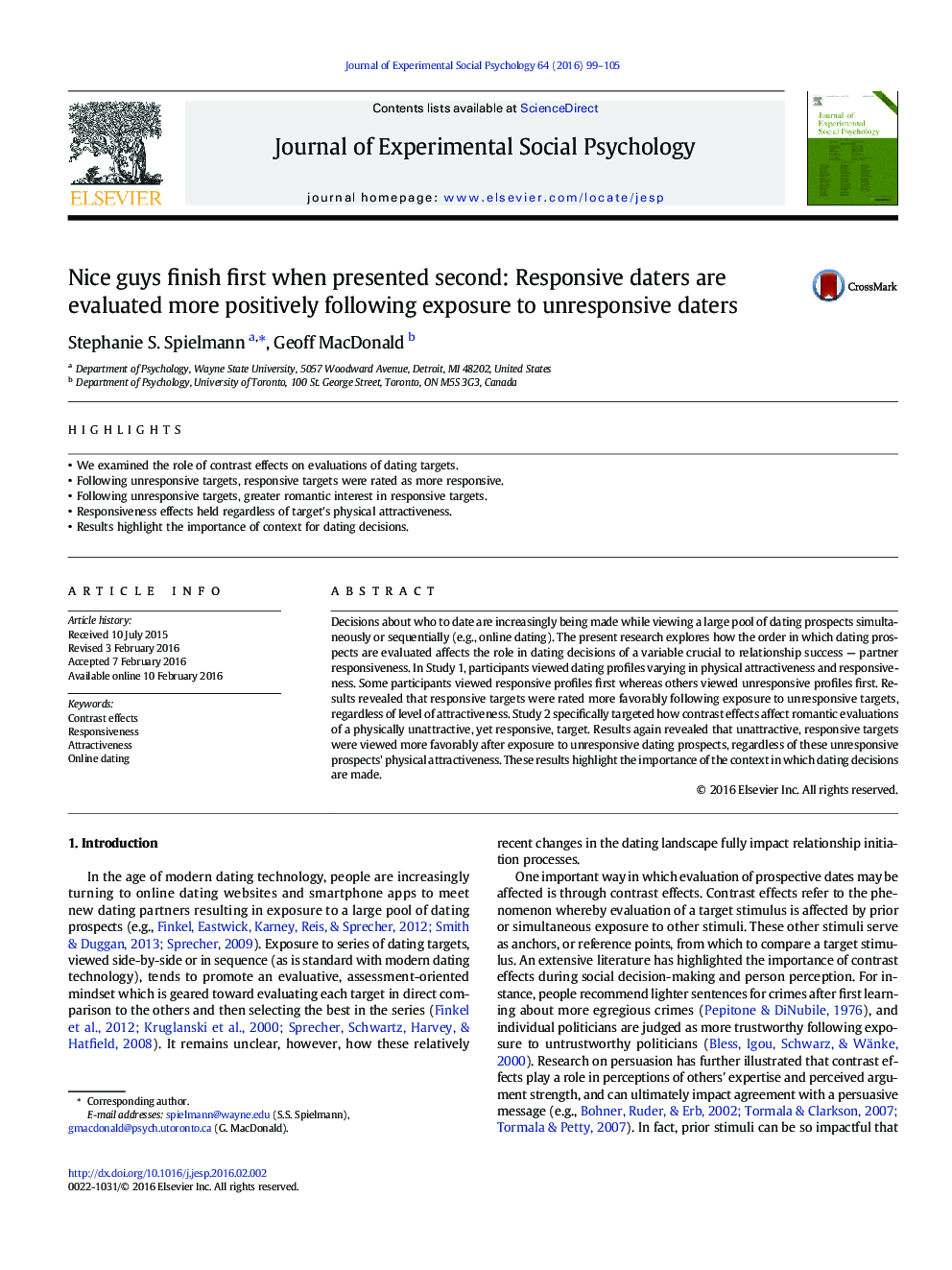| کد مقاله | کد نشریه | سال انتشار | مقاله انگلیسی | نسخه تمام متن |
|---|---|---|---|---|
| 947698 | 1475859 | 2016 | 7 صفحه PDF | دانلود رایگان |
• We examined the role of contrast effects on evaluations of dating targets.
• Following unresponsive targets, responsive targets were rated as more responsive.
• Following unresponsive targets, greater romantic interest in responsive targets.
• Responsiveness effects held regardless of target's physical attractiveness.
• Results highlight the importance of context for dating decisions.
Decisions about who to date are increasingly being made while viewing a large pool of dating prospects simultaneously or sequentially (e.g., online dating). The present research explores how the order in which dating prospects are evaluated affects the role in dating decisions of a variable crucial to relationship success — partner responsiveness. In Study 1, participants viewed dating profiles varying in physical attractiveness and responsiveness. Some participants viewed responsive profiles first whereas others viewed unresponsive profiles first. Results revealed that responsive targets were rated more favorably following exposure to unresponsive targets, regardless of level of attractiveness. Study 2 specifically targeted how contrast effects affect romantic evaluations of a physically unattractive, yet responsive, target. Results again revealed that unattractive, responsive targets were viewed more favorably after exposure to unresponsive dating prospects, regardless of these unresponsive prospects' physical attractiveness. These results highlight the importance of the context in which dating decisions are made.
Journal: Journal of Experimental Social Psychology - Volume 64, May 2016, Pages 99–105
